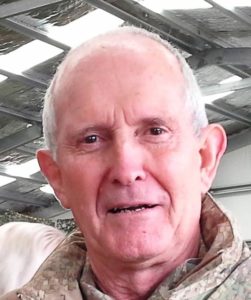
Long time Howick resident Colonel Barry Dreyer has had his work and service to veterans recognised with the Defence Meritorious Service Medal — but he’s taking it in his stride
“It was all a bit of a surprise actually,” he laughed.
Mr Dreyer was on a ship in the middle of the Indian Ocean when he received the news of his award in March, and says he immediately shared the good news with his wife.
Since his retirement from the New Zealand Army in 1988, Mr Dreyer has provided 30 years of continuous voluntary support and service to the New Zealand Army veterans’ community and to a wide range of community organisations with links to the Armed Forces. In 2010 he was appointed Colonel Commandant of the Royal Regiment of New Zealand Artillery, an honorary, unpaid position that serves as the domestic head of the Regiment with the role of fostering esprit de corps, promoting community interest, advising senior officers and commanders on regimental matters and maintaining close relationships with their counterparts in Commonwealth forces. As Colonel Commandant, Mr Dreyer’s contribution has been to serving and retired soldiers and their families, to regimental heritage and, as a consequence, to the historical legacy of New Zealand.
Mr Dreyer is an active supporter of the Royal New Zealand Artillery Association and was made a Life Member in 2012. Through the association and other veterans’ organisations he has become well known to the community, especially Vietnam veterans. He is extraordinarily active and forthright in providing assistance and advice to the families of living and deceased veterans, travelling extensively throughout the country at his own expense maintaining contact with those in need. As a result of this advocacy, he has had regular contact with the Ministers of Defence and Veterans Affairs on individual welfare cases.
He was also a vocal champion of the review of the Veteran Support Act 2014 and the repatriation of the remains of New Zealand servicemen from foreign graves. Of particular importance has been his effort to create a living bridge between the few remaining veterans from World War Two and the recent veterans from Afghanistan and Iraq. As a consequence of this work, the Regimental Association has had a dramatic rise in the number of members from the post-Vietnam era. These modern “veterans” were, until Mr Dreyer’s appointment, a missing part of the veterans’ landscape.









